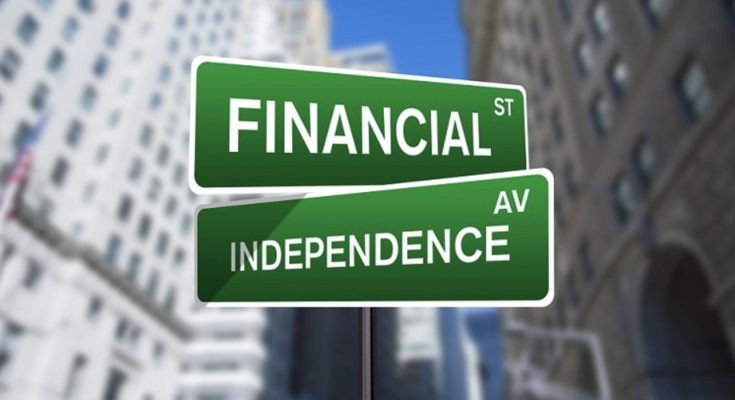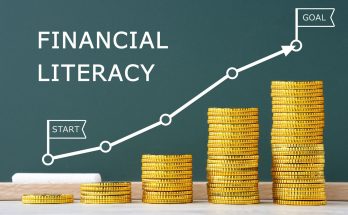Imagine waking up each day with the freedom to choose how you spend your time. No more clocking in at a job that drains your energy or worrying about bills piling up. This is the promise of financial independence—the ability to live life on your own terms.
Financial independence isn’t just a dream; it’s an achievable goal that can transform your lifestyle and future. In this blog post, we’ll explore what it means to attain financial independence, its numerous benefits, and actionable steps you can take today. Whether you’re looking to retire early, travel the world, or simply enjoy peace of mind without financial stress, understanding this path can lead you there. Let’s dive into how you can start crafting a life where money works for you rather than against you!
Understanding Financial Independence
Financial independence is the state of having enough personal wealth to live without relying on employment income. It means your assets generate sufficient cash flow to cover your living expenses.
Many people equate financial independence with early retirement, but it’s much broader. It’s about creating a lifestyle that prioritizes freedom and choice over traditional work constraints.
This concept emphasizes control over your finances rather than being controlled by them. Imagine making decisions based on passion instead of necessity.
Understanding this mindset transforms how you approach saving, spending, and investing. Financial independence encourages proactive planning and disciplined habits that align with long-term goals.
It’s essential to recognize that this journey looks different for everyone—there’s no one-size-fits-all path to achieving it.
The Benefits of Achieving Financial Independence
Achieving financial independence opens doors to a life filled with choices. You gain the freedom to pursue passions without the weight of financial stress.
With your finances in order, you can travel more, explore hobbies, or spend time with family. This newfound flexibility enriches your personal experiences and enhances relationships.
Financial independence also provides peace of mind. Knowing that you’re secure allows you to focus on what truly matters—your health and happiness.
Moreover, it empowers you to give back. Whether through charitable donations or volunteering your time, having financial stability enables impactful contributions to your community.
It fosters a sense of accomplishment too. The journey toward independence builds discipline and confidence in managing money wisely. Each step taken reinforces positive habits that last a lifetime.
Steps to Achieving Financial Independence
Achieving financial independence starts with a clear plan. It’s essential to define what that means for you personally. Everyone has different goals, so take some time to visualize your ideal lifestyle.
Next, create a budget that reflects your income and expenses. This helps you identify areas where you can cut back. Small changes can lead to significant savings over time.
Once you’ve got your budget in place, focus on increasing your income. Consider side hustles like freelance work or online gigs that align with your skills and interests.
Don’t forget the importance of tackling debt early on. Pay off high-interest debts first; this will free up more money for saving and investing later.
Invest wisely. Research options that suit your risk tolerance and long-term goals—stocks, real estate, or retirement accounts are all worth considering as part of building wealth.
Creating a Budget and Reducing Expenses
Creating a budget is the cornerstone of financial independence. It gives you clarity on where your money goes each month. Start by tracking all your income and expenses for a few months. This will help reveal spending patterns.
Once you have this data, categorize your expenses into essentials and non-essentials. Essentials include rent, utilities, groceries, and transportation. Non-essentials might be dining out or subscription services.
Next, set realistic limits for each category. Consider using the 50/30/20 rule: allocate 50% to needs, 30% to wants, and 20% to savings or debt repayment.
To reduce expenses, look for areas where you can cut back without sacrificing quality of life. Maybe it’s cooking at home more often or canceling unused subscriptions.
Small changes add up over time and create space in your budget to achieve financial goals faster.
Increasing Income through Side Hustles and Investments
Increasing your income can be achieved through side hustles and smart investments. The gig economy offers countless opportunities to leverage your skills or passions. Whether it’s freelance writing, graphic design, pet sitting, or tutoring, you can find something that fits your schedule.
Investments are another avenue for boosting income. Consider stocks, real estate, or peer-to-peer lending as ways to grow your wealth over time. Research is key; understanding market trends will help you make informed decisions.
Diversifying income sources reduces reliance on a single paycheck. This not only increases financial resilience but also opens doors for new experiences and learning curves.
While side hustles may require time upfront, they often lead to unexpected rewards—both financially and personally. Embrace the journey of exploring these avenues; it could transform how you view money and freedom in life.
Paying off Debt and Building Savings
Paying off debt is a crucial step toward achieving financial independence. Start by listing all your debts, focusing on high-interest accounts first. The snowball method can be effective—pay off smaller debts first to build momentum.
While tackling debt, it’s essential to build savings simultaneously. Aim for an emergency fund that covers three to six months of expenses. This cushion will prevent future financial setbacks.
Consider setting up automatic transfers to your savings account each month. By treating savings like a fixed expense, you prioritize your future self without thinking twice about it.
Adjusting spending habits also plays a significant role in this journey. Identify non-essential expenses that can be cut back or eliminated altogether. Redirect those funds into paying down debt and building that safety net you deserve.
With patience and discipline, both goals are achievable, paving the way for greater financial freedom ahead.
Investing for Long-Term Wealth and Security
Investing for long-term wealth and security is a powerful strategy to build financial independence. By putting your money into various assets, you can harness the power of compounding over time.
Stocks, bonds, and real estate are popular options. Each comes with its own risks and rewards, so it’s essential to diversify your portfolio. A mix can help protect against market fluctuations.
Consider low-cost index funds as they often outperform actively managed funds in the long run. They provide exposure to a broad range of stocks without high fees eating into returns.
Don’t forget about retirement accounts like 401(k)s or IRAs. These not only offer tax advantages but also encourage disciplined saving habits.
Regularly review your investments to ensure they align with your goals. Staying informed allows you to make adjustments when necessary while keeping an eye on future opportunities that may arise.
Maintaining Financial Independence
Maintaining financial independence requires vigilance and adaptability. Life is unpredictable, and your finances should reflect that reality. Regularly review your budget to ensure it aligns with your evolving goals.
Keep an open mind about spending habits. Sometimes, the things that once brought joy may no longer hold value. Identify areas where you can cut back without feeling deprived.
Investing should remain a priority. Revisit your portfolio periodically to adjust for market changes or shifts in personal circumstances. Make informed decisions based on research rather than impulse.
Stay connected to supportive communities or networks focused on financial literacy. Engaging with like-minded individuals can provide fresh insights and motivation when challenges arise.
Prioritize self-discipline while enjoying life’s pleasures. Financial independence doesn’t mean sacrificing happiness; it means making choices that enhance both freedom and fulfillment simultaneously.
Balancing Lifestyle Choices with Financial Goals
Finding the right balance between lifestyle choices and financial goals can be challenging. It requires conscious decision-making and self-awareness.
Consider your values. What truly matters to you? Understanding this will help prioritize spending and saving.
Enjoy dining out or traveling? Allocate a portion of your budget for these experiences while ensuring it doesn’t derail savings plans.
Flexibility is key. Adjusting your expenses allows room for occasional indulgences without sacrificing long-term objectives.
Tracking habits plays a significant role too. Monitor where money flows, identifying areas ripe for cuts while still enjoying life’s pleasures.
Think about the trade-offs involved in every choice you make. Each dollar spent can either enhance today or contribute to future wealth.
Achieving harmony between enjoyment and responsibility leads to sustainable financial independence, enriching both your present and future journey.
Conclusion
Achieving financial independence is a journey that requires dedication and strategic planning. It empowers individuals to take control of their lives, allowing them to make choices aligned with their values and desires rather than being dictated by financial constraints. By understanding the fundamentals, embracing the benefits, and following actionable steps like creating a budget, increasing income through side hustles or investments, paying off debt, and building savings, anyone can work towards this goal.
Furthermore, investing for long-term wealth ensures ongoing security while maintaining independence involves balancing lifestyle choices with financial objectives. The path may be challenging at times but remember that every step taken brings you closer to living life on your terms. Embrace this opportunity for empowerment; your future self will thank you for it.



